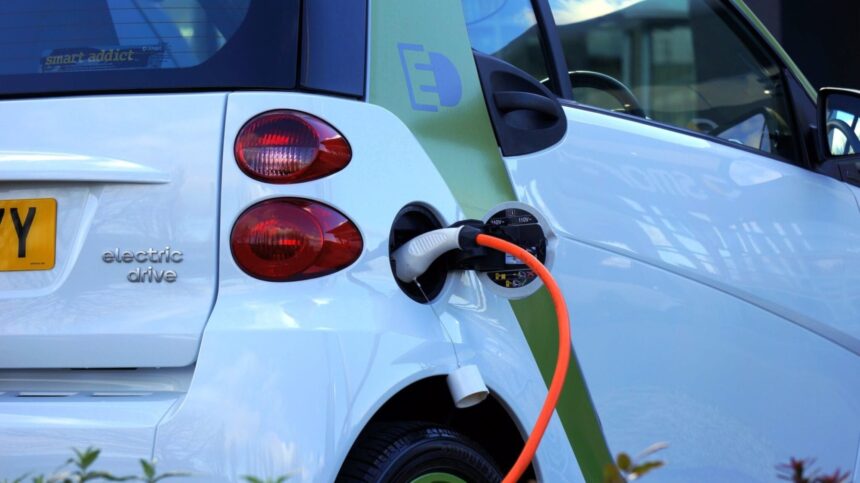The transport sector has been undergoing a significant transformation in recent years, with electric vehicles (EVs) emerging as a central component of this shift. Conventional petrol and diesel cars are increasingly being set aside, as consumers and industry alike embrace the myriad of benefits that EVs offer. This article explores the reasons why electric vehicles are not merely a passing fad but represent the future of transportation.
The Evolution Towards Electric Mobility
Climate change and environmental concerns have accelerated the push towards electric mobility. Governments worldwide are setting ambitious targets to reduce greenhouse gas emissions, with the transport sector identified as a key area for improvement. Electric vehicles offer a cleaner alternative to traditional combustion engines, as they produce zero emissions at the tailpipe and have the potential to significantly lower overall transport emissions when charged with renewable energy.
Beyond environmental aspects, technological advancements have considerably boosted the appeal of EVs. Improved battery life, more extensive charging networks, and broader model choices have made electric vehicles a more convenient and versatile option for consumers. Additionally, the cost of owning and operating an EV is decreasing, making them increasingly cost-competitive with conventional vehicles.
Charging Infrastructure and Range Anxiety
One of the historical barriers to the widespread adoption of electric vehicles has been range anxiety—the fear of running out of battery without access to charging points. However, this concern is quickly becoming a thing of the past. There has been a concerted effort by governments and businesses to build out a comprehensive network of public charging stations, allowing for longer journeys and instilling confidence in potential EV adopters.
Home and workplace charging options have also proliferated, allowing EV owners to charge their vehicles with convenience. Initiatives promoting the installation of home charging infrastructure have further reduced the logistical barriers to EV ownership.
The Economic Argument for Electric Vehicles
The economic argument for electric vehicles is compelling. Lower maintenance requirements and the absence of many mechanical parts in EVs mean that the cost of upkeep tends to be lower than that of traditional vehicles. Electric vehicles also benefit from various incentives such as tax rebates, grants, and exemptions from congestion and low-emission zone charges, further boosting their economic viability.
With the increased focus on sustainability from business and investors, companies are also beginning to comprehend the long-term value of integrating EVs into their operations. Fleets of electric company cars, delivery vehicles, and even heavy-duty trucks are becoming more commonplace.
Electric Vehicle Market and Consumer Adoption
The electric vehicle market has witnessed exponential growth over the past decade. This has been driven, in part, by increased consumer awareness and enthusiasm for the technology. As the EV market matures, consumer hesitation is fading, replaced by a recognition of the practicality and performance that modern electric vehicles provide.
This website showcases just how far the world of electric mobility has come, offering a glimpse into the remarkable capabilities and advantages of electric vehicles. Automotive brands have diversified their offerings, thus ensuring that there is an electric vehicle suitable for almost every need and lifestyle.
Advantages of Electric Vehicle Rental
Renting electric vehicles is an excellent way for individuals to experience EVs without the long-term commitment of ownership. Electric vehicle rental makes it easier for drivers to test different types of EVs and find the one that best suits their needs before making a purchase. Additionally, rental provides an accessible way for people to utilize an electric vehicle for specific occasions or to supplement their regular transportation needs.
For those on the fence, renting an EV gives a hands-on opportunity to appreciate the quiet operation, instant torque, and the simplified driving experience electric vehicles offer. It also provides insight into the ease of charging and the everyday practicalities of EV ownership.
The Role of Companies like Evee in Driving Adoption
Companies that specialize in electric vehicle platforms, such as evee, are influential in shaping the public’s perception and acceptance of electric vehicles. By offering services that make it easy for individuals to rent or list their electric cars, evee is helping to pave the way for a sustainable future in transportation.
The growth of the shared mobility sector, including the rental and sharing of EVs, plays a crucial part in the large-scale shift towards electric mobility. It illustrates a practical path forward for integrating EVs into society and reducing the collective carbon footprint of transportation.
Future Projections
As battery technology improves and economies of scale come into effect, it is expected that the upfront cost of electric vehicles will continue to decrease, further accelerating their adoption. Auto manufacturers are responding to the EV demand by committing to electrify their fleets and investing billions in the development of new electric models.
Public perception continues to evolve as electric vehicles become more mainstream, and the narrative around EVs shifts from one of compromise to one of superior technology and performance. Electric vehicles are not simply an alternative to petrol or diesel cars—they are becoming the preferred choice for an ever-growing portion of the consumer market.
Conclusion
The evolution towards electric vehicles as the future of transportation is supported by multiple compelling factors: environmental necessities, technological advancements, economic incentives, market growth, and innovative companies that foster EV adoption, such as evee. Together, these elements form a powerful case for why electric vehicles are not just a provisional trend but the inevitable future of mobility on a global scale.
As the world continues to recognize the importance of reducing its carbon footprint, the widespread transition to electric vehicles seems not just probable, but certain. With each passing year, the benefits of electric vehicles grow, offering a vision of a cleaner, quieter, and more sustainable mode of transportation that meets the demands of the 21st century and beyond.


